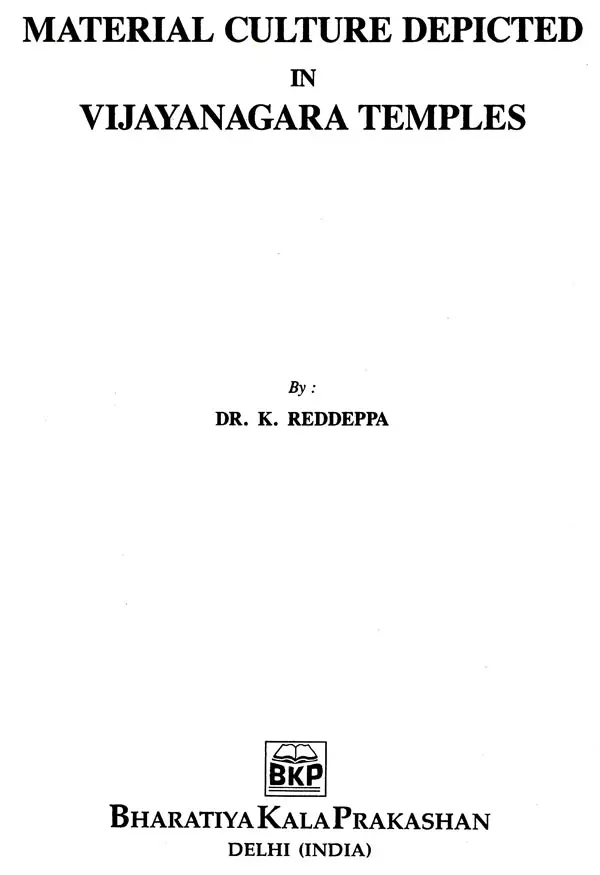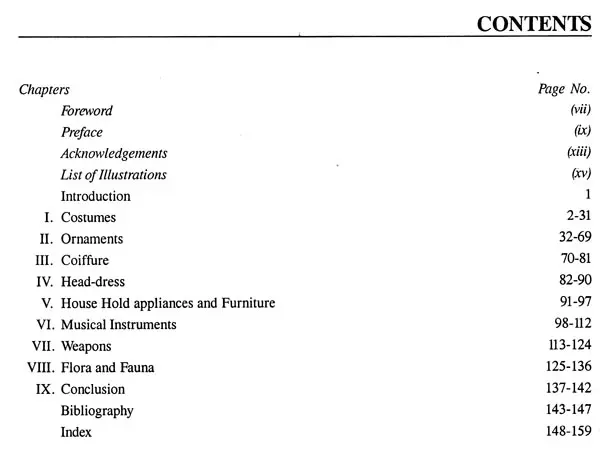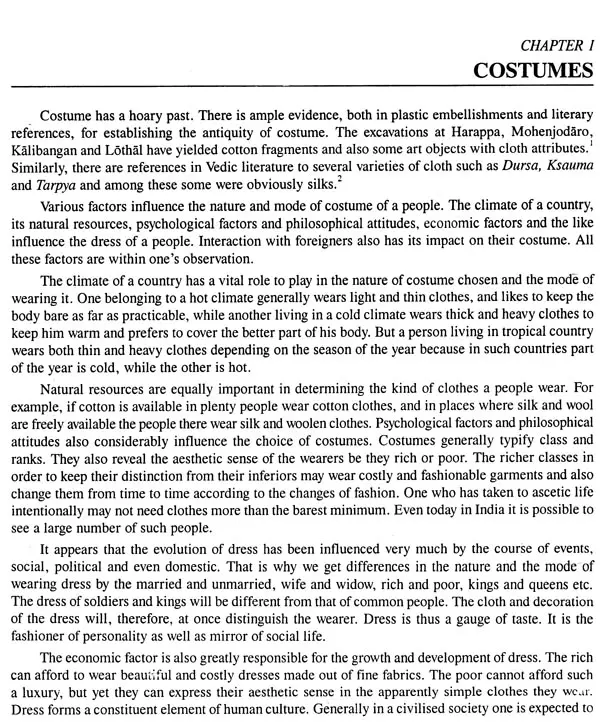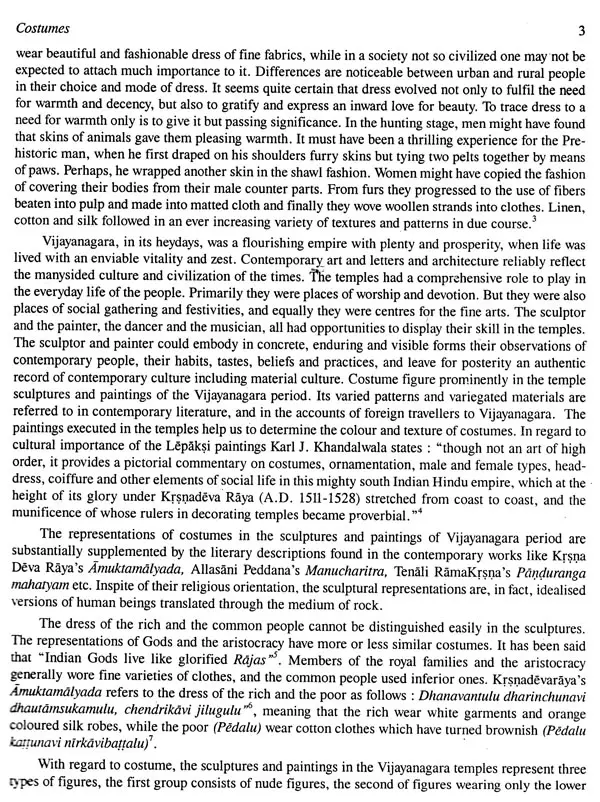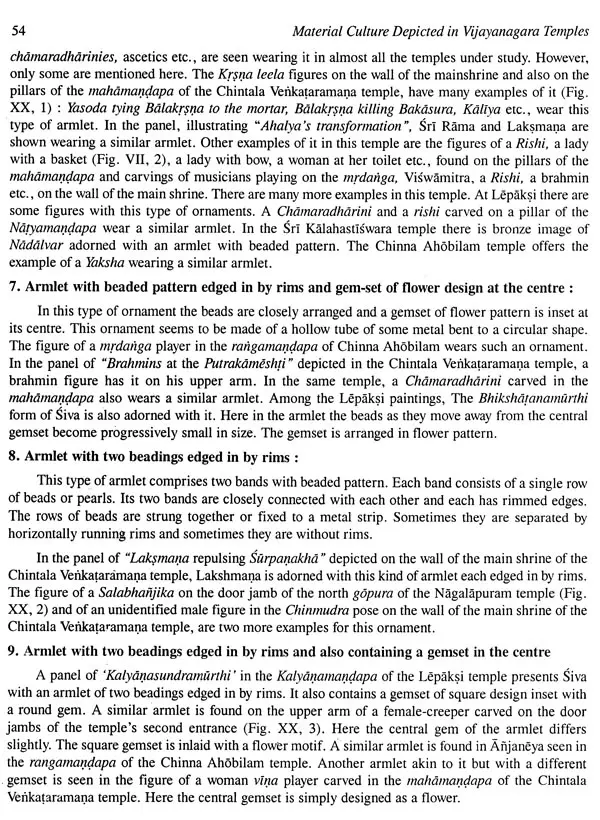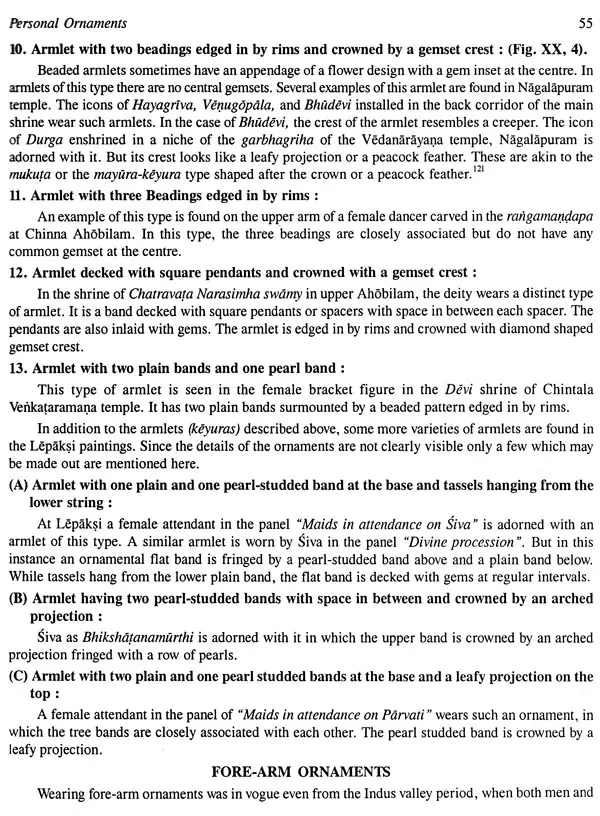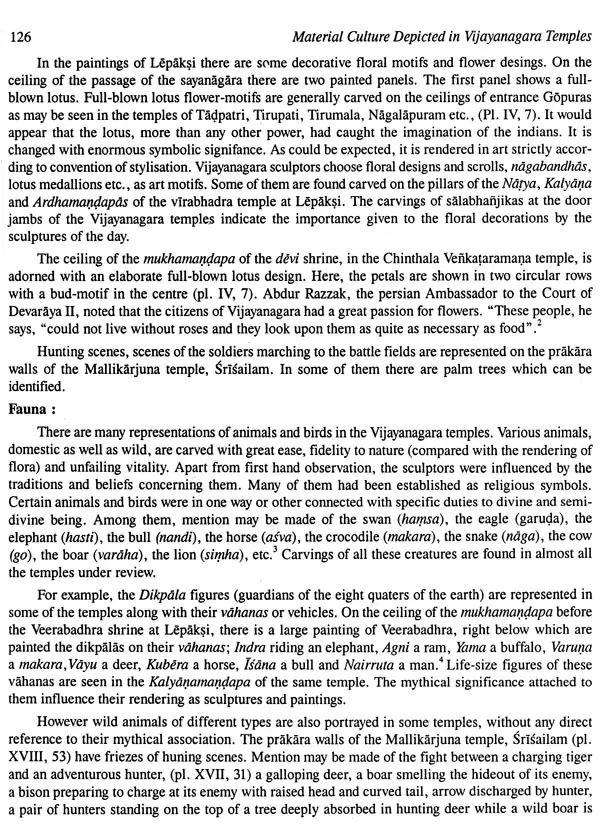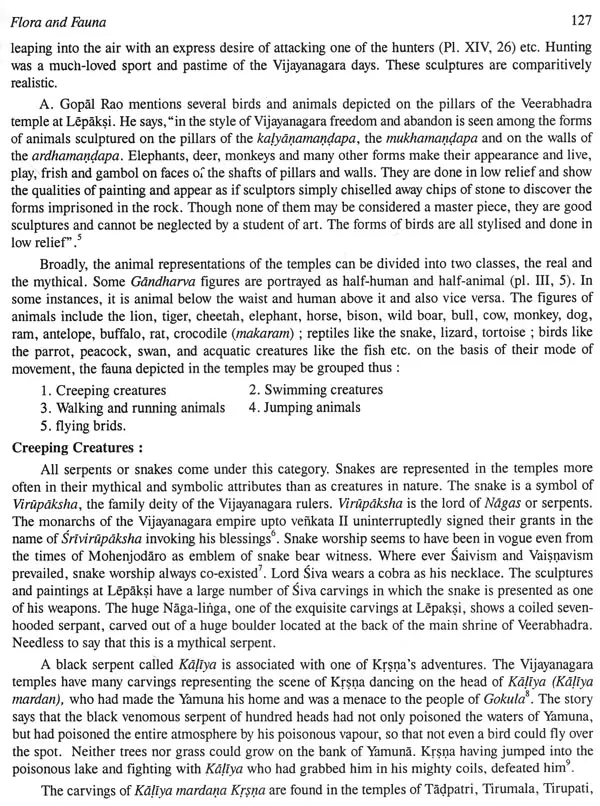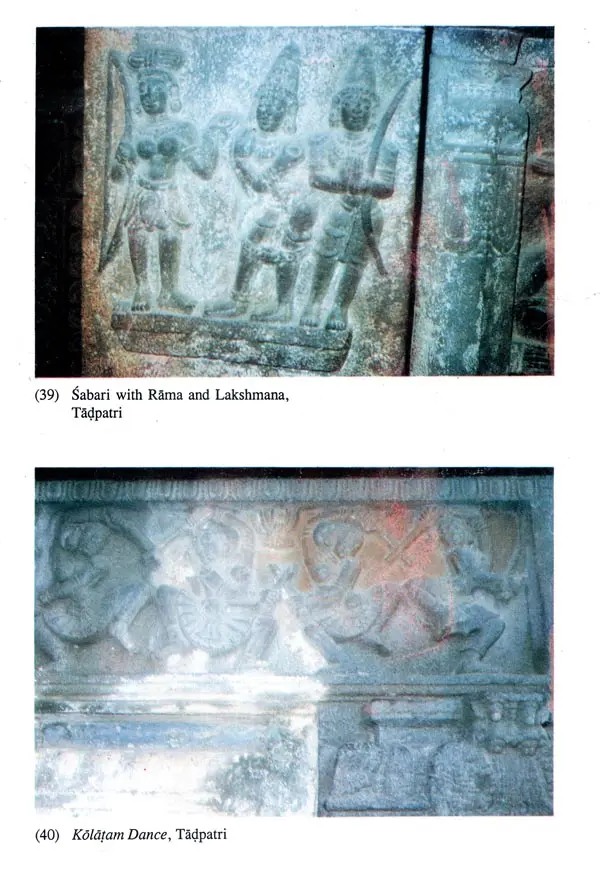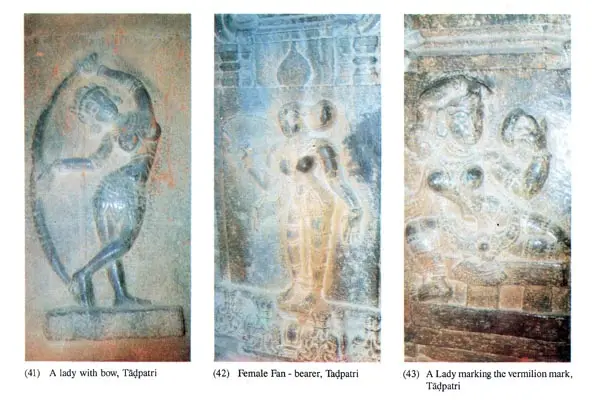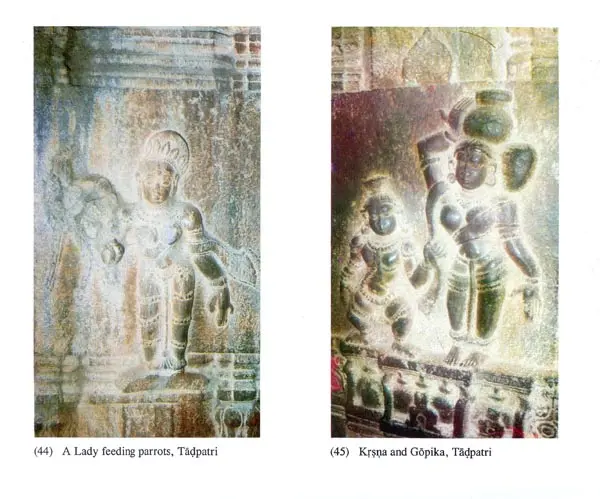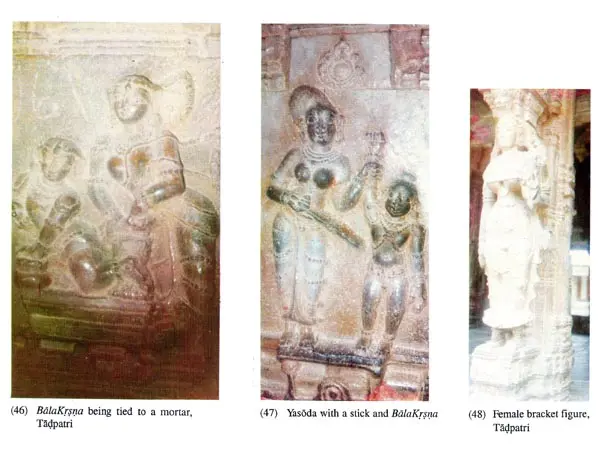
Material Culture Depicted in Vijayanagara Temples
Book Specification
| Item Code: | UAN519 |
| Author: | K. Reddeppa |
| Publisher: | Bharatiya Kala Prakashan |
| Language: | English |
| Edition: | 2001 |
| ISBN: | 8186050604 |
| Pages: | 204 (B/W and Color Illustrations) |
| Cover: | HARDCOVER |
| Other Details | 11.00 X 9.00 inch |
| Weight | 1 kg |
Book Description
Needless to say, the data of the present work is compared with the material of different regions and periods where ever warranted. An attempt has also been made to evaluate the then contemporary social life. Necessary line drawings and photographs are appended to the book.
He has a distinguished academic record. He has undergone Museum Training Course and Copleted Refresher Course in Conservation of Museum Objects, while he was working as curator in T.T.D. Museums. So far he has published 15 research papers. His M.Phil. dissertation was published with Financial Assistance of T.T.D. In addition to the above academic excellences, he is an artist, singer, and dramatist. The present book comprising of so many line drawings have been personally drawn by him. Above all he has been taking classes for Civil Services, Group 1, Group II etc. competitive examinations in the Pre-examination Training Centre, S.V. University Tirupati, Padmavati Mahila University, Tirupati and other private centres for the past ten years.
The Vijayanagara sculptors have relied on the Puranas, Ramayana and Mahabharata for the subject matter. However, they did not miss a single opportunity to depict contemporary social life and material culture. The sculptors have taken care to make almost a photographic depiction of dress and ornaments. The temple sculptures and paintings of Vijayanagara times tell us a great deal about costumes, personal ornaments, coiffure, head gears, house-hold appliances, musical instruments, weapons as also fauna and flora. Since patronage to the sculptors and painters came almost entirely from the bette-to-do classes of society-the royalty, nobles etc., it is theit material culture rather than that of the less privileged class, that gets better reflected in the temples.
Though a particular aspect of material culture has been studied by scholars, all the aspects of material culture of the Vijayanagara art are left untouched. Hence a humble attempt has been made in the present inquiry to study the life of the people of Vijayanagara times and their material culture as depicted in the sculptures and paintings of the Vijayanagara Temples. In executing the carvings and paintings, the ancient artists have meticulously depicted the life of the Vijayanagara people in Kaleodoscopic variety reflecting intensely the aspects of material culture.
Book's Contents and Sample Pages
